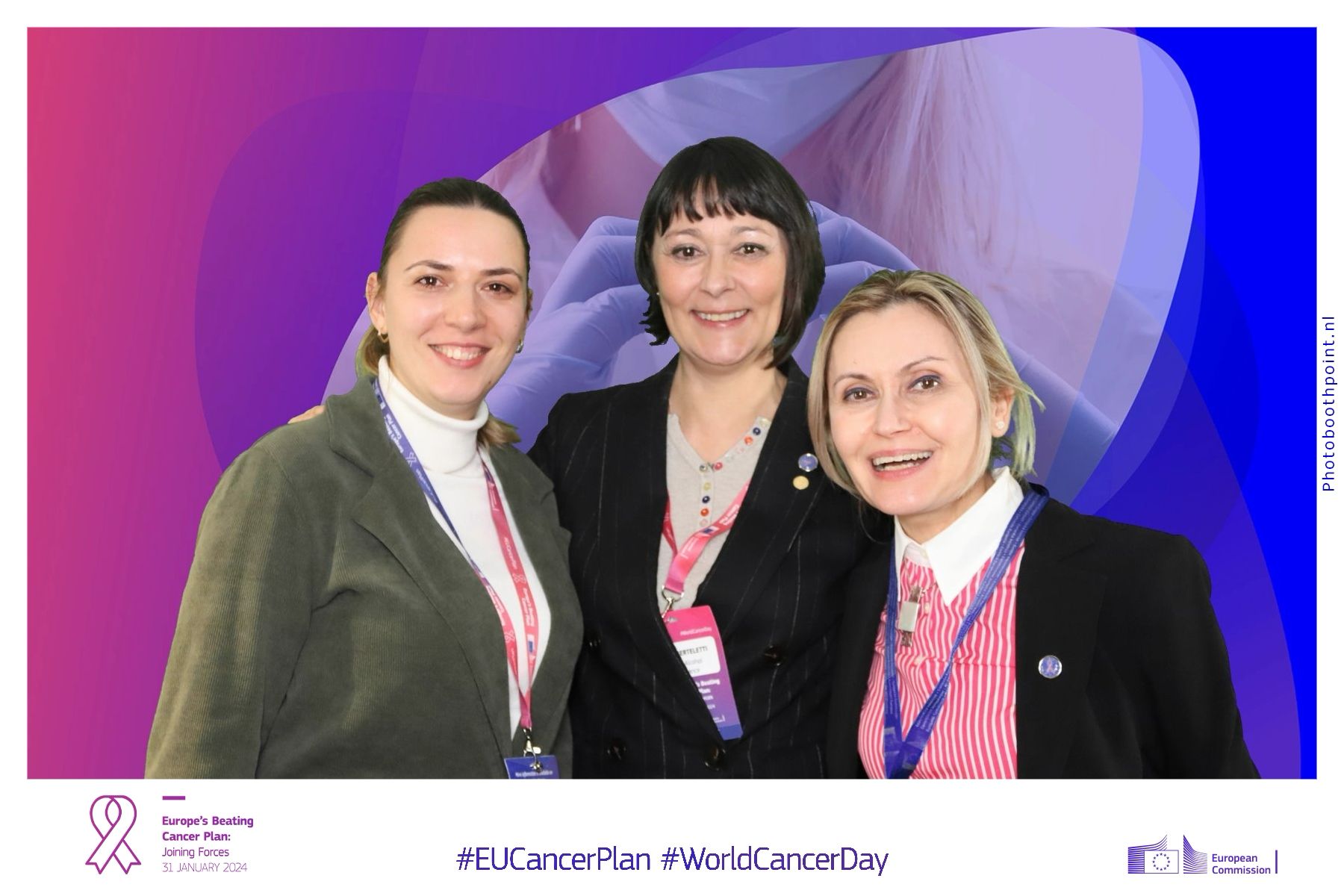Unfinished Business: Lack of Progress on Vital Prevention Measures in Europe's Beating Cancer Plan
The European Commission event titled "Europe's Beating Cancer Plan: Joining Forces" was held on 31 January 2024 to mark World Cancer Day. The focus was celebrating the achievements in cancer treatment and care, with inspirational narratives maintaining the discussions on patients and treatment inequalities. Primary prevention and the political dimension of cancer were almost entirely missing from the agenda. Dr Hans Henri P. Kluge, Regional Director of WHO Europe and Frank Vandenbroucke, Belgium’s Vice Prime Minister and Minister of Social Affairs and Public Health saved the day, by referring in their interventions to tobacco control, alcohol labelling and the commercial determinants of health, highlighting the need to focus on prevention and introduce population measures to tackle lifestyle issues and their impact on health.
In her question, Eurocare's Secretary General, Florence Berteletti, emphasised the critical need to address failures in delivering the Beating Cancer Plan. She raised concerns about impediments hindering the progress of legislative proposals crucial to the Beating Cancer Plan, particularly those related to alcohol, tobacco, and the promotion of healthy diets, as outlined in the plan's roadmap. These proposed actions are designed to tackle the primary risk factors contributing to non-communicable diseases, including cancer. The challenges identified are attributed to lobbying efforts by the alcohol, tobacco and food industries.
While acknowledging the efforts of DG SANTE and Commissioner Stella Kyriakides, Ms. Berteletti posed important questions [see video below] regarding how DG SANTE can enhance its capabilities to better address issues related to tobacco control, alcohol, and unhealthy food. She also inquired about the potential for collaborative efforts with other DGs, such as DG TAX and DG AGRI, since the complex nature of the proposals necessitates cross-horizontal political negotiations between Directorate-Generals, and the EU institutions. Finally, she stressed the importance of actively involving independent civil society organizations not funded by the industry.
Commissioner Kyriakides responded by reaffirming the Commission's commitment to cancer prevention and highlighted the ongoing initiatives on vaccine-preventable cancers and achieving a smoke-free generation. The other prevention efforts are currently in the evidence-gathering stage and will be implemented as soon as possible, she said. This raises serious concerns about the comprehensive implementation of the Beating Cancer Plan, especially given the change of mandate in a few months’ time.
Recognising the Impact of Commercial Determinants on Public Health
| “For too long, disease risk factors have been framed as mostly linked to individual choice. That is only partly true. Healthy choices are limited. If consumers do not have easily understandable consumer information, if unhealthy products are too easily accessible, if the environment they live in is simply unhealthy.
Therefore, we have the responsibility to create societal conditions that make a healthy lifestyle possible for everybody. “ -Frank Vanderbroucke |
Eurocare applauds the remarks made by both Mr. Hans Kluge, Regional Director of WHO Regional Office for Europe and Belgian Health Minister Frank Vanderbroucke for emphasising the risks associated with alcohol consumption and advocating for robust initiatives in cancer prevention in their speeches. Both stressed the imperative to integrate the lens of Commercial Determinants of Health, recognizing the adverse impact of private sector activities on public well-being. This acknowledgment is particularly crucial when addressing the aggressive promotion of unhealthy products like alcohol, tobacco, and processed foods, which significantly contribute to cancer and other NCDs.
Mr. Hans Kluge rightly emphasised that any level of alcohol consumption poses a cancer risk and underscored the importance of confronting the vested interests and commercial influences, which have an impact on all aspects of health, notably prevention and care. The partnership between the EU and WHO on alcohol-related initiatives, particularly the warning labels on alcoholic beverages was given as a successful example of collaboration.
Minister Vanderbroucke reminded the audience that a significant number of cancers are preventable and that prevention measures such as addressing risk factors deliver. He called for the full attention and political commitment to the prevention agenda part of EU’s Beating Cancer Plan and asked to reignite discussions on European regulatory initiatives regarding alcohol, tobacco, and unhealthy foods. He shared his vision of bearing the responsibility to create societal conditions that make a healthy lifestyle possible for everybody, which is not possible without considering the Commercial Determinants of Health, including the marketing power of big corporations.
To effectively combat NCDs, including preventable cancers, Eurocare firmly believes in prioritising prevention, echoing the interventions of Mr. Kluge and Minister Vanderbroucke. According to the World Health Organization, 30–50% of all cancer cases are preventable. Eurocare continues to advocate for robust cancer prevention measures to ensure the successful execution of all actions in the Beating Cancer Plan, including alcohol labelling and health warnings.

